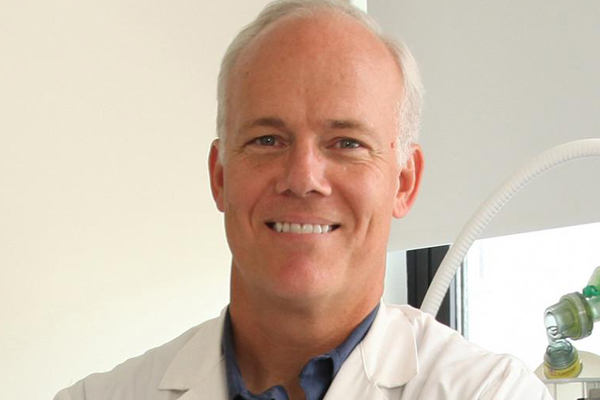Improving care for critically ill older patients
August 4, 2016
Share
A new joint study by Queen’s and the University of Calgary aims to create a framework to assist intensive care physicians in partnering with patient’s families, to enable and empower them as advocates and participants in patient care.
Queen’s researcher Daren Heyland and University of Calgary researcher Tom Stelfox have begun a four-year Canadian Institutes of Health Research (CIHR) project, aimed at gathering evidence-based insights into late life issues that are becoming more urgent as the population ages.

“We’ve continually observed deficiencies in care provided to older patients admitted to intensive care units,” says Dr. Heyland. “As we orient our healthcare system more and more towards patient or family-centered care, the issue becomes how to partner with families to enable them to advocate for their loved ones and participate in their care. We created a multidisciplinary team that will support the design and implement a care pathway and a set of best practices that will improve the outcomes of both critically ill patients and their families.”
During the “late life” period, most Canadians will experience a serious or critical illness. As technology has improved, life-saving and sustaining procedures have created new challenges for physicians in managing aging and critical care. In addition to these challenges, patients’ families increasingly play a larger role as partners in care provision.
Tasked with the research component of the grant, Dr. Heyland will look to address areas of weakness in existing family partnership frameworks. Over the course of multiple studies and trials, the researchers will examine whether an on-line support tool (myicuguide.com) can improve and guide patients’ families in making informed decisions on the care of their loved ones and whether a set of educational materials, including videos, can empower families to advocate for best nutrition practices.
The team grant will also look at creating a handover tool to ensure patient care is maintained leading up to and following discharge, as well as a tool to screen and assist patient family members who might be experiencing spiritual distress.
Dr. Heyland says this project is a continuation of the gradual acknowledgement of the role of the family as a care partner. He says this program will be the first to examine the optimal way to include family members in the care process and empower them to take on an advocacy role for their loved ones
“Over the last several years, we’ve shifted in our view of the family from a passive recipient to a more active partner involved in rounds and engaged in decision making,” says Dr. Heyland. “Formal research on the process has been sort of slow to emerge and that’s where our group is showing leadership. How do we know how to include family in the care process and measure its effect? I think that’s the role of the researcher – to develop appropriate interventions and outcome measures to evaluate what effect that has on patient care.”